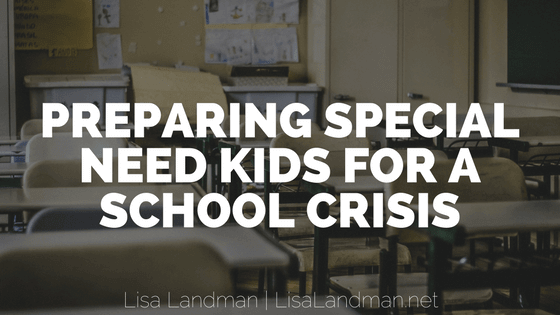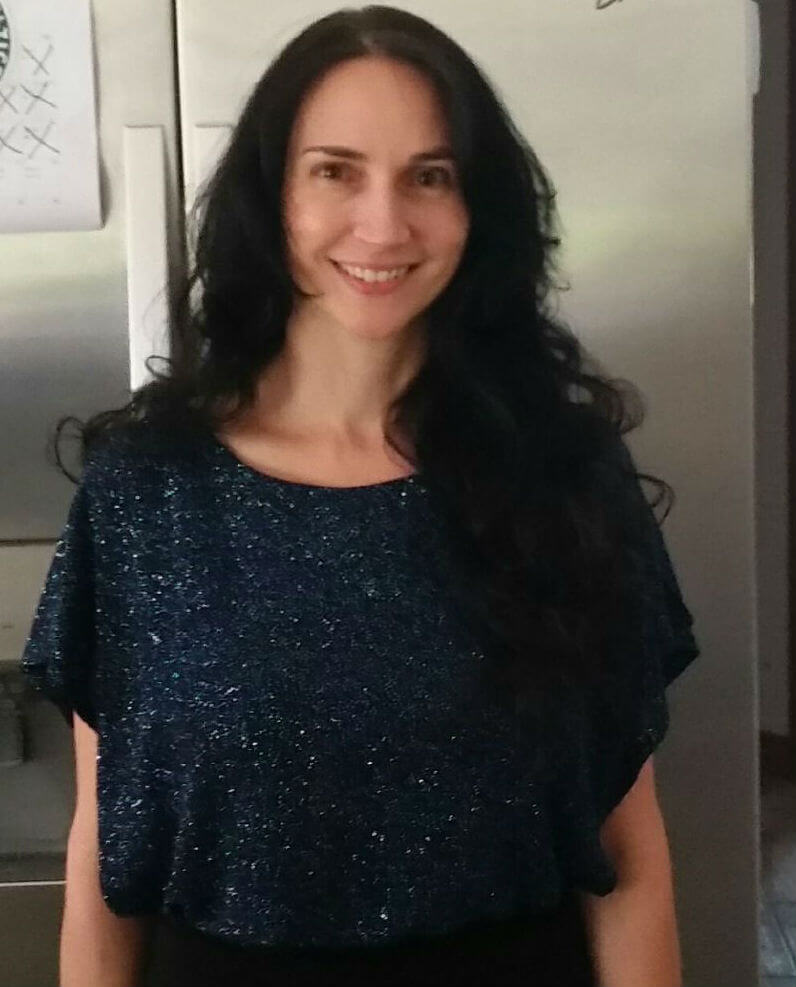
Tips for Parenting a Child With Special Needs
The world is made up of millions of children that each have their own unique needs. Children with special needs- whether it be emotional or physical- are actually a fairly common occurrence. In fact, over 14 percent of children in the United States have special needs, which means many parents may struggle with the challenge of raising them to become kind and productive members of society.
Ways to Cope
Having a special needs child does not mean that parenting will always be difficult. Special needs children bring their own brand of humor and fun to life, just like other children do. However, there are ways to make the day-to-day less stressful, such as:
- Taking some “me” time to focus on one’s own health and well-being. This could mean a day at the spa, exercising a few times weekly, regular date nights with a spouse, or even splurging on a much-needed vacation without the kids.
- Journaling on a regular basis to keep track of day-to-day behaviors which may be beneficial to look back on in the future.
- Seeking therapy to talk about the challenges of parenting a special needs child.
Managing a Child’s Behavior
Whether special needs are brought on by emotional or physical reasons, seeking a professional’s help that specializes in behavioral issues will help make things easier for both the parents and the child. They can help a parent understand why their child is acting the way they are, and how they can settle situations that may arise. Tips they may give include:
- Maintaining a consistent sleep schedule.
- Making opportunities for frequent socialization with their peers.
- Keeping track of medications and ensuring they are taken on time each day.
- How to keep calm when a child is having a meltdown so as not to escalate the situation further.
- Ways to meet a child’s educational needs despite their behavioral challenges.
- Finding Support
Realizing that childhood behavioral issues are a common occurrence is the first step towards not feeling alone. There are local support groups, online support groups through social media platforms, educators that specialize in working with special needs children, and qualified medical professionals that are there to listen and provide support options.
Lisa Landman has a passion for helping others and has worked with special need adults throughout her career. Learn more about her professional work or check out her Twitter!

Preparing Special Need Kids for a School Crisis
Sadly, school shootings are continuing to occur. With the recent gunfire at Marjory Stoneman Douglas High School in Parkland, Florida, I started thinking about how we can keep special need kids safe during emergencies. Regardless of how the government and education system tries to prevent school shootings from happening, it’s crucial that we take a look into how we can keep our students safe, especially thinking about those with special needs.
Daily Routine
Children with special needs like routine, so when they are at school, it’s typical that they follow a similar routine every day. In Parkland, Florida, the shooting occurred after a fire alarm went off for the second time that day. Special needs children may have been warned about the first fire drill, but no one could have prepared for the second. All students are told how to act after the fire alarm goes off, but this occurrence was much different. I wonder how children with disabilities reacted once they realized it was not a typical fire drill. Would they have responded by hiding and staying calm? These answers are hard to know.
Special needs students can have difficulty responding to loud noises, unexpected drills, and the demand to be quiet because they can become quickly overwhelmed. While there are school crisis plans that help students be prepared for a school shooting or other unexpected event, however, not many take into account for special needs children.
“We don’t have a national model,” Dr. Dusty Columbia Embury, an associate professor of special education at Eastern Kentucky University, said. “And from district to district, they may have a general safety plan, but even within that safety plan it may or may not address students with disabilities.”
IELP
Dr. Embury and her colleague Dr. Laura Clarke wrote a guide for supporting students with disabilities during school crises. In their guide, they discuss one option to prepare students with disabilities for unexpected events. Dr. Embury and Clarke recommend having an Individual Emergency and Lockdown Plan© (IELP) in place for the students. The IELP helps address teaching and progress on acquiring the required skills for enduring a lockdown or emergency at school as an integral part of the student’s learning experience. The guide also recommends parents being actively involved in their child’s learning progression.
With evacuation and lockdowns drills becoming a regular occurrence in schools, special need students are often faced with disruptions of routine, unrealistic behavior expectations, accessibility problems, and other challenges. Keeping all students safe is a necessity, and both Dr. Embury and Dr. Clarke are developing a system that can prepare students with disabilities to stay safe in school crises.
Lisa Landman has a passion for helping others and has worked with special need adults throughout her career. Learn more about her professional work or check out her Twitter!

A New Face for Gerber Baby
The Gerber Baby family welcomes Lucas Warren – a 1-year-old from Georgia who has Down Syndrome! He’s the first baby with Down Syndrome to become Gerber’s “Spokesbaby of the year” in its 91-year history.
Gerber Products Company is a baby food and baby product manufacturer. In 1928, the company held a competition to find a spokesbaby that would be featured in their marketing and advertising campaigns. Artist Dorothy Hope Smith entered the contest with a simple but beautiful baby face that is now recognized around the world. The drawing was also featured on baby products include food cans.
More recently, the company decided to launch an annual baby photo contest. In 2010, Gerber decided to start a new contest where parents are encouraged to submit adorable photos of their babies. Parents can submit photos on Facebook and Instagram of their star babies for review. Gerber receives thousands of photos each year and must select only one each year. Unlike the grand prize of $300 in 1928, the winning Gerber Baby wins a $50,000 cash prize.
In 2018, Lucas Warren won the Gerber Baby Photo Search and will now appear on Gerber’s social media and advertising throughout the year.
“This is such a proud moment for us as parents knowing that Lucas has a platform to spread joy, not only to those he interacts with every day, but to people all over the country,” Cortney Warren, Lucas’ mom said. “We hope this opportunity sheds light on the special needs community and educates people that with acceptance and support, individuals with special needs have the potential to change the world — just like our Lucas.”
According to the National Down Syndrome Society, down syndrome is a genetic disorder which occurs when there is a full or partial extra copy of chromosome 21. This additional chromosome alters the course of development and results in physical traits such as low muscle tone, small stature, and slanted eyes. According to the Centers for Disease Control and Prevention, approximately 6,000 babies in the United States are born with down syndrome, making this disorder the most common chromosomal condition for babies.
With Lucas becoming a national face for Gerber Baby, this will help educate others on down syndrome and help shed light on the special needs community.
Lisa Landman has a passion for helping others and has worked with special need adults throughout her career. Learn more about her professional work or check out her Twitter!
About Lisa Landman
Lisa Landman earned her doctorate in psychology from Fordham University in 2005. One of the reasons why Lisa pursued psychology is due to her interest in helping others. Throughout her life, Lisa has spent time helping the most vulnerable populations of society which includes animals. She and her husband have rescued six different dogs over the years, and Lisa volunteers with the Special Olympics. Lisa particularly cares about adults with disabilities since they’re a population that tends to face increased vulnerability as they age.
Previously in her career, Lisa Landman worked as a Residential Coordinator at Bishop Grady Villas which describes itself as a “place where adults with disabilities are able to thrive and achieve their dreams” (Bishop Grady Villas Homepage). The best part of working at Bishop Grady was getting to know the residents. Lisa found each resident to be an amazing person with a huge heart, a caring attitude, and a wonderful personality. She particularly admired the residents’ attitudes toward life. Even with their daily struggles, they approached each day with optimism.
The most difficult aspect of working at Bishop Grady Villas was the lack of funding. A large amount of the residents are on the waitlist to receive benefits from the government which Lisa Landman finds unacceptable. If the residents can’t get government assistance, then their families must pay for them to live there. Sadly, there are many adults like the residents of Bishop Grady Villas who don’t have families to help them receive the sort of attention and care they need. This unfortunate reality is one of the reasons why Lisa is motivated to assist adults with disabilities as much as possible.

Lisa Landman served as an assistant basketball coach in early 2017. Helping the Bishop Grady residents during their weekly practices was a lot of fun. Seeing how much fun the residents have during games never failed to make Lisa smile. Lisa plans to assist with more Special Olympics events in the future. Since the Special Olympics is a nationwide organization, anyone can get involved. Helping adults with disabilities is a great way to spend one’s time, and Lisa encourages everyone she knows to get involved in some manner.
Professional Overview
Over the years Lisa Landman has worked in a variety of areas such as human resources and teaching. For eleven years she owned a fitness center where she was involved in nearly every aspect of the business. Presently, she’s working with Costech Lab as the Director of Operations. Lisa’s diverse work experience means that she can thrive in nearly any work situation. She looks forward to continuing to pursue entrepreneurial projects while helping others at the same time.
